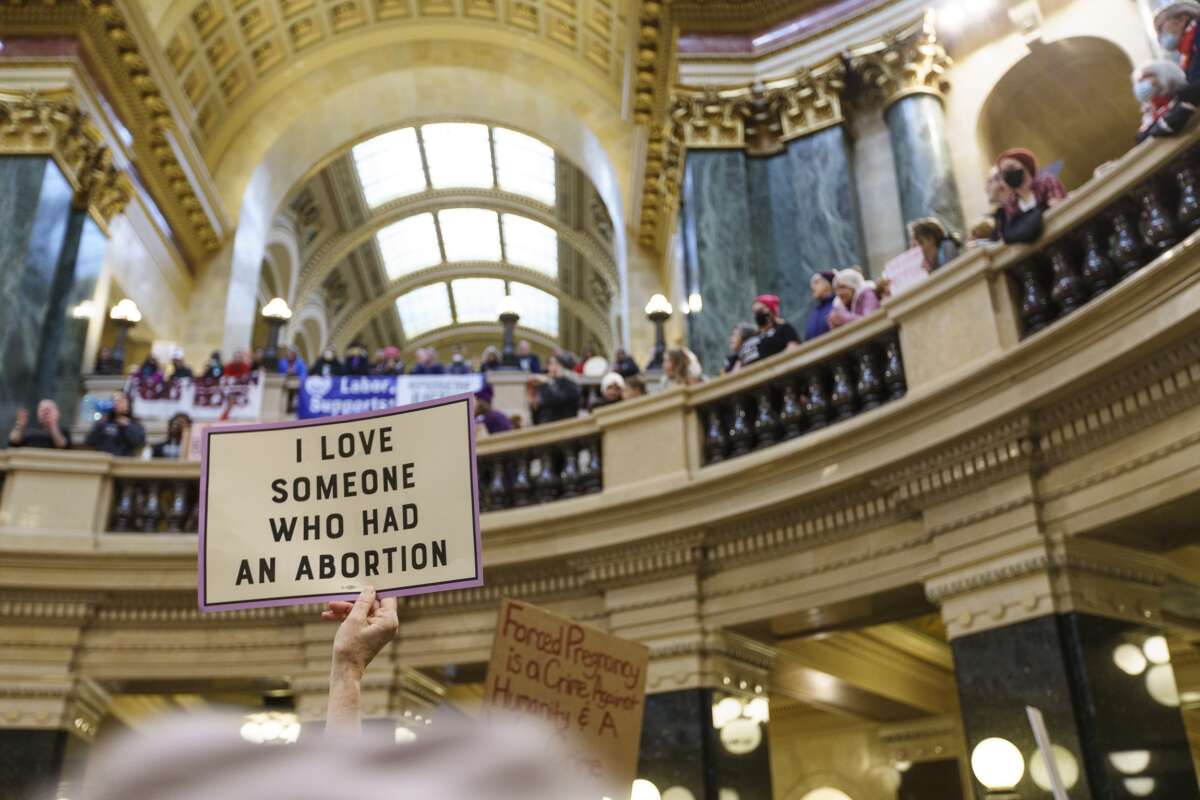Honest, paywall-free news is rare. Please support our boldly independent journalism with a donation of any size.
Wisconsin Gov. Tony Evers (D) and Democratic lawmakers in the state legislature introduced a bill earlier this week that would restore abortion rights in Wisconsin to where they stood before the overturn of Roe v. Wade last summer.
After the U.S. Supreme Court ruled to overturn Roe, several states reverted back to abortion statutes that were in place prior to that ruling. For Wisconsin, that meant a law passed in 1849 — just one year after the state was established — that almost completely bans abortion.
The law only allows abortions in the state prior to the ambiguous stage of “quickening” (the time when a fetus can be felt moving), and makes no exception for rape or incest. A person can only get an abortion after that point if a pregnancy threatens their life.
The bill that Democrats and Evers introduced on Tuesday would essentially repeal the 1849 statute and return abortion rights precedents to where they were in Wisconsin up until last year.
“I’m proud to join Legislative Democrats in continuing our fight to restore access to reproductive freedom in Wisconsin with a clean repeal our state’s 1849-era criminal abortion ban,” Evers said about the bill.
Rep. Lisa Subeck (D), the sponsor of the state Assembly version of the bill, celebrated the legislation for restoring people’s reproductive rights and ability to choose for themselves, with their doctors, the path that is right for them.
“Every pregnancy and every situation is different,” Subeck said. “We believe in the rights of individuals to make our own reproductive health care decisions, in consultation with our families, our physicians, those we choose to involve, but without interference from politicians.”
The bill, though lauded by Democrats, has almost zero chance of passing the Republican-controlled legislature, which is dominated by anti-abortion lawmakers. Although Evers and other statewide officials have been elected in two straight election campaigns, Republicans control nearly two-thirds of the seats in both the state Senate and state Assembly due to gerrymandered districts they drew in 2011 and 2021.
Republicans, perhaps recognizing that most of the state’s voters oppose keeping the 1849 law intact, have tried but so far failed to come up with a consensus on how to change it. A bill they introduced last week would add exceptions for rape and incest, and clarify definitions for when a person’s life is at risk, but would keep other provisions of the law untouched.
In a Marquette University Law School poll from last fall, Wisconinites were asked whether they favored the overturn of Roe v. Wade. A majority (55 percent) said they opposed the action by the Supreme Court, while just over a third of residents in the state (37 percent) said they were in favor of it.
Evers recognized that Republicans would oppose the bill, in spite of the fact that most Wisconsinites would likely back the Democrats’ proposal.
“We have a bill. Let’s have a debate,” the governor said. “Republicans have their bill; the Democrats have their bill. The people of Wisconsin should be able to hear a debate about this issue. Not silence.”
A terrifying moment. We appeal for your support.
In the last weeks, we have witnessed an authoritarian assault on communities in Minnesota and across the nation.
The need for truthful, grassroots reporting is urgent at this cataclysmic historical moment. Yet, Trump-aligned billionaires and other allies have taken over many legacy media outlets — the culmination of a decades-long campaign to place control of the narrative into the hands of the political right.
We refuse to let Trump’s blatant propaganda machine go unchecked. Untethered to corporate ownership or advertisers, Truthout remains fearless in our reporting and our determination to use journalism as a tool for justice.
But we need your help just to fund our basic expenses. Over 80 percent of Truthout’s funding comes from small individual donations from our community of readers, and over a third of our total budget is supported by recurring monthly donors.
Truthout has launched a fundraiser to add 379 new monthly donors in the next 6 days. Whether you can make a small monthly donation or a larger one-time gift, Truthout only works with your support.
